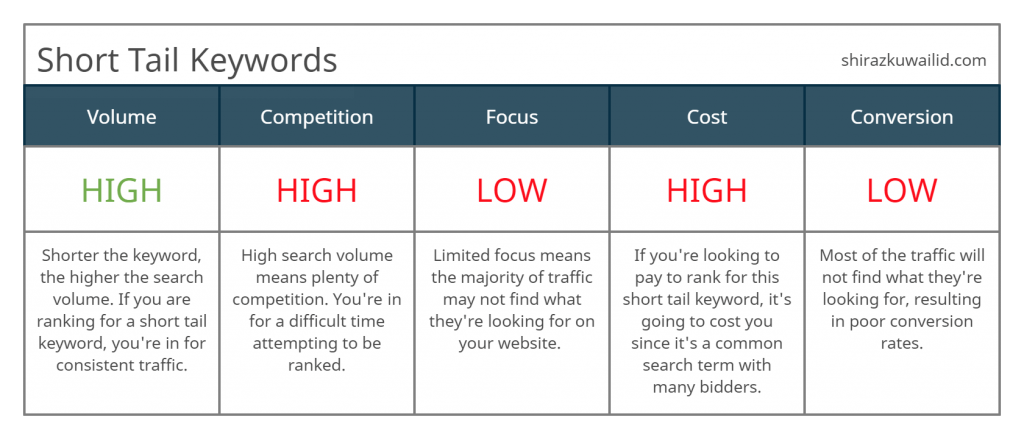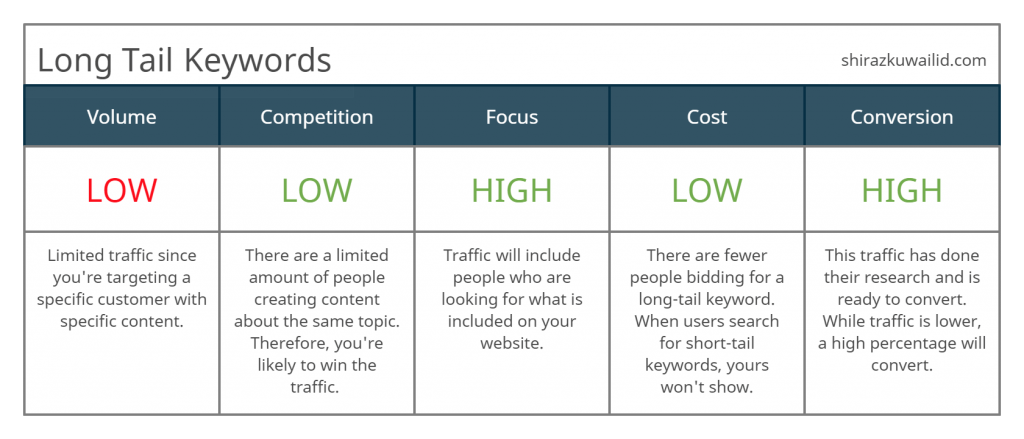You’ve probably always followed a template when outlining your keyword strategy. Sure, you can do that. But in a modern keyword strategy, you need to focus on search intent and how valuable it is to your business. The foundation of a good search engine optimization strategy always starts with keyword analysis. The keywords you come up with become the direction you steer the ship towards.
At present, a keyword strategy cannot be based solely on what the user types in the search field. You have to take into account that search functions have changed and evolved, perhaps for the better.
In recent years, voice search has taken over some of the way we look at searches in general. Apple, which was early on the ball, has changed the way we discover new information. Apple launched SIRI (a feature we all know about) in October 2011 and at that time with many bugs. A while after its launch, Google Home and Amazon Echo also arrived. But how does voice search really affect your keyword strategy?

Today we can see a change in search behaviour as users adapt more to the interface. Voice searches tend to be used as full sentences, which significantly increases the number of words compared to searches on smartphones or computers.
The importance of ranking on the first page of search results is constantly being talked about. And as the feature is used more and more, we will most likely talk about the importance of ranking at “position zero” instead. When it comes to voice search, it’s not the top rankings we’ll be talking about, but it’s the response that’s read that matters most.
Voice search will continue to grow at the same pace, and I see a future soon where voice search is part of everyday life for everyone. As part of SEO, it is important to see the potential of voice search and adapt your SEO and keyword strategy to match the demand. In a modern keyword strategy, you need to look up and ask yourself: “Have I included everything in my strategy?”
Enough about voice search. Let’s get into how to get your keyword strategy right. I’ve got the tips – follow along!
Isn’t it time to stop looking at search volume alone?
When you’re doing your keyword analysis to come up with the keywords to focus on, search volume is probably the metric you use in your decision-making process. There are a large number of tools at your disposal when doing an analysis, but it’s important that you actually understand and appreciate the data you’re getting.
What should you consider about search volume? High search volume is an indicator that keywords are used frequently and in most cases are competitive and difficult to rank on. At the same time, the big general keywords are not as close to a conversion as when someone does a more specific search.
The natural thing to do may be to focus only on keywords with high search volume. But of course, the optimum is to rank on both the big and the smaller keywords, but in SEO it will never take just one day to rank high. Let it take time and start with the keywords that are closest to your offer. Then, continue to continuously work on optimizing your website to promote it from both an SEO and keyword strategy perspective.
So, it’s important to target keywords in your content that actually have real search volume; if no one searches for the keywords you’re targeting, no one will find your content. However, if you only target keywords with extremely high search volume, it will be difficult to compete with larger sites and get your content to rank. You’ll have to make your own trade-offs between which keywords you think will benefit your site the most.

When making the trade-off of which keywords you think will help your site, you should use long-tail keywords. Since competition is not as tough on long-tail keywords, it is easier to beat other websites with content on long-tail keywords in search engines. Long-tail means that searchers reveal more of their ultimate intentions. In addition, it is easier to create content around a specific search intent with long-tail keywords.

Practice makes perfect!
Understand the search intent when making your keyword strategy
Search engines today have developed the ability to understand search intent in one-tenth of a second. Nowhere near what it was 10 years ago. Understanding search intent has therefore become an increasingly important part of your modern keyword strategy. We just need to recognise this and understand how it affects our keyword strategy.
It can be difficult to make a keyword strategy if you stare blindly at keywords and search volume. If you only use high search volume keywords but don’t understand the intent of the search, your preliminary work will lead nowhere. I’m not saying that search volume is unimportant, but more that you need to understand what your visitor is looking for.
To be relevant in search results, you need to understand the intent behind the keywords you’re optimizing for and deliver the right content to the visitor. If Google prioritises presenting relevant content to the right users – shouldn’t you do the same?
Ultimately, search volume doesn’t matter – it’s not about generating more traffic or higher rankings, and your job as a marketer is to generate money in the form of sales, leads and customers.
This is where search intent comes in – understanding that search intent can change over time or even in an instant due to real events.
How do you investigate search intent?
To understand search intent, the best way is to research your chosen keyword, perform searches and analyse search behaviour on Google. What kind of searches are coming to the top of the SERPs? For example, are they pages that provide product and purchase-related hits, or do they explore the topic in depth and contribute information?
To make it easier, the pages are usually categorised according to 4 areas:
- Information searches (informational)
- Navigation searches (navigational)
- Transactional searches
- Commercial investigation
Information searches:
You guessed right. Information searches are about searching for information. It can be anything from:
- How do you lay floors?
- How do I make a risotto?
- What is the name of the Democratic Party leader?
Remember to offer direct answers to questions if you can. Increasingly, searches are in the form of full questions, and you can also get Featured Snippets when you work that way.
Navigational searches are when you search for a specific website without typing in the full URL. Examples of this are typing in:
- Spotify login
- Tax return
- Mobile phone reload online
Commercial searches:
Commercial searches can be explained as the phase before the purchase is made. For example, the visitor wants to explore reviews to get a clearer picture of the product or service.
- Microsoft Surface or MacBook
- iPhone 12 review
- Best headphones 2021
Transactional searches:
Transactional searches are the phase when you are ready to make a purchase and know what you are looking for to complete the purchase. It could be that you know what product you want to buy or a discount code for that store so you can complete your purchase. It is very similar to commercial searches but this is closer to a purchase or conversion:
- Buy iPhone 12 Pro Max
- Apply for membership
- H&M discount code
Identify who ranks high on your keyword
Google doesn’t rank keywords linearly 1 to 10 based on things like backlinks or how many times the keyword appears on the page. Google’s ranking process is much more complex and takes into account a variety of factors including user experience, such as location and previous searches.
You can’t develop a proper keyword strategy without analyzing the competition. If you do a thorough analysis of all the competitors in your field, you will get a solid understanding of the competition quite easily. Google the keywords you want to rank for to see which companies come up, then compare how well your company ranks. How big are the companies ranking in the top spots? Does your company fit in the results and can you grab a spot?
You can’t just rely on the search results because Google tailors them to personal search history, which means your site will rank better for you than for others doing the same search. One tip is to search in incognito mode to get better rankings.
When looking at the sites that already rank for the keywords you are targeting, you need to review:
- What type of content ranks highest?
- What does the page lead to? What does the landing page look like?
- Is the domain primarily focused on commercial or informational content?
- Does the domain represent a brand?
- Is the brand associated with a specific keyword?
- Is the brand actively involved in marketing activities?
The essentials of keyword strategy
Checking your analytics regularly to keep track of your SEO performance is extremely important, but keep in mind that you can’t perform without tailored content to the specific needs and goals of your keyword strategy.
If you’ve gone through all the steps and done a thorough keyword research, you should have an idea of what to target and how to do it. You can use these insights to create the content you need for your strategy to be successful. For example, you can:
- Create landing pages
- Create content that is related to each search intent
- See if voice search might be a good fit for your strategy
- Videos
Or something else, the possibilities are endless and only your imagination sets the limits. The paths to take to make a perfect keyword strategy are often crooked. But with my help, it gets a little straighter.
Summary
We’ve now gone through what a good keyword strategy is, how you should think and what elements you should focus on. Beyond that, the day has come to stop talking about keyword volumes and focus instead on search intent and how valuable it is to your business.
SEO is complex and there is no one-size-fits-all strategy, but there are best practices that can be implemented to deliver consistent results.
So it’s important that I educate and inform my clients about a modern keyword strategy and explain why things are good (or bad) ideas.
Improve your keyword analysis with Shiraz Kuwailid
Are you ready for professional help with your SEO? You can reach me out by clicking the button below.
That’s all! Thanks for reading, please feel free to share the post with anyone you think would benefit from reading it.
